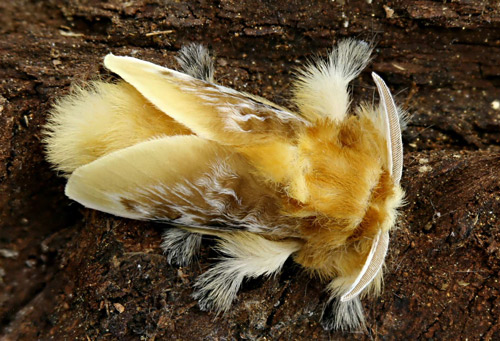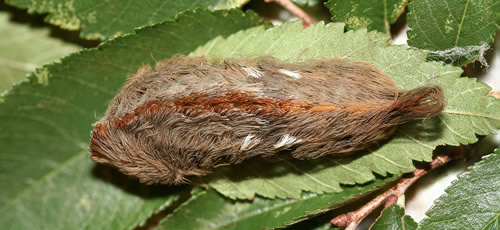
The southern flannel moth, Megalopyge opercularis, is an attractive small moth that is best-known because of its larva, the puss caterpillar, which is one of the most venomous caterpillars in the United States.
The Florida Poison Information Center says that the caterpillar was recently responsible for a Florida woman’s trip to a hospital in Dade County, Florida.

The southern flannel moth is the most common of the five species of megalopygids found in the southeastern United States and is found from New Jersey to Florida and west to Arkansas and Texas.
It is common in Florida, however, reaches its greatest abundance in Texas from Dallas southward in the western central part of the state.
The venomous spines of puss caterpillars are hollow and each is equipped with a venom gland.
A sting from a puss caterpillar does not necessarily inspire a trip to the emergency room, but The Florida Poison Information Center in Tampa warns those who have a history of hay fever, asthma, or allergies may be a greater risk. If you are stung and have an allergic reaction, you should “contact a physician immediately” officials say.
According to officials, the puss caterpillar’s sting is “very painful.”
Those who have been stung describe the pain as feeling like “someone drilling into your bones.”
According to The Florida Poison Information Center, one way to decrease pain from a sting is by removing the caterpillar’s venom-filled spines. A person can do this by covering the affected area with tape and then peeling it off.
While there are two generations of puss caterpillars each year — one in the spring and another in the fall — The Florida Poison Information Center said the puss caterpillar spends the winter in a cocoon.
The venomous creatures love citrus trees and oak… if you see one it’s best to stay clear.
